Last Updated on July 31, 2021
 Why It Works is an ongoing column which breaks down some of the most acclaimed films in history and explores what makes them so iconic, groundbreaking, and memorable.
Why It Works is an ongoing column which breaks down some of the most acclaimed films in history and explores what makes them so iconic, groundbreaking, and memorable.
****SPOILERS AHEAD****
Rob Reiner's STAND BY ME turns 30 this month, and if you've been watching Netflix's Stranger Things, there's a good chance you've been feeling nostalgic for some of the classics of the 1980's. While many films of the 1970's focused on bringing a realism to the supernatural and extreme, the 1980's often brought a sense of wonder and gravity to simple and everyday subject matter. STAND BY ME features a low-stakes plot, loosely connected scenes, and an anti-climactic ending and yet feels universally significant and remains one of the great coming of age stories in cinema. Here's why it works:
WHY WE LIKE THE CHARACTERS:
As any movie about kids on an adventure should, STAND BY ME features a group of unique, memorable, and at lovably naïve protagonists. Jerry O'Connell's Vern Tessio is the classic "I don't know if this is such a good idea" guy, Corey Feldman's Teddy Duchamp is the crazy one, who'll take on a speeding train to quell the pain of personal issues, River Phoenix's Chris Chambers is the kid from the wrong side of the tracks, already resigned to the life of a ne'er-do-well, and Wil Wheaton's Gordie Lachance is our everyman hero, doomed to live in the shadow of his deceased brother, Denny. In Gordie's memories of Denny and determination to find the body of Ray Brower, we see a character who needs to confront and overcome his anguish. He hasn't quite figured out how or why this particular adventure will help, though, which in a way further endears us to him, as we can all relate to the feeling of needing something without knowing exactly what it is. Meanwhile, Kiefer Sutherland's Ace Merrill and his gang of misfits serve as the prototypical bad guys of the story, though their scenes also give us an insight into a different stage of adolescence, where cynicism and general disappointment have set in, and the only recourse is rebellion.
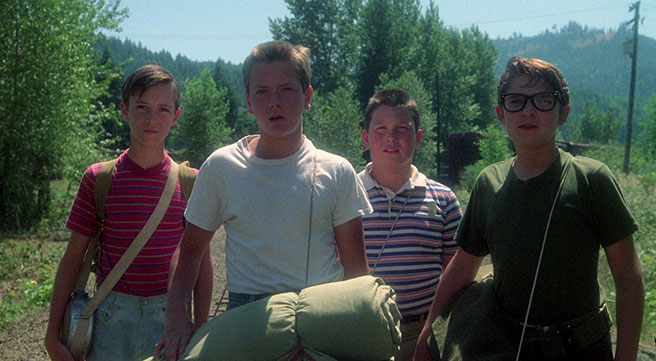 "We knew exactly who we were and exactly where we were going. It was grand."
"We knew exactly who we were and exactly where we were going. It was grand."
WHY WE CARE:
"I was twelve going on thirteen the first time I saw a dead human being." If there's one thing we've seen plenty of in movies, it's dead bodies, so why do the adult Gordie's opening lines pull us into the film so viscerally? For one, it paints a picture of the universe we're entering into. By taking away the fantasy of car chases and space battles, we're left to consider our reality, in which seeing a dead body as a twelve year-old would indeed be monumental. Moreover, it sets a clear goal for our characters. Granted, the boys want to recover the body and become local heroes, but it becomes clear early on that getting there and finding Ray Brower is the immediate challenge, especially for Gordie. Looking at the film on a broader scale, STAND BY ME is about characters coming to terms with maturity, the brutality of the world, and ultimately, death. While a run-in with the junkman and his viciously cute dog, Gordie's tale of a pie-eating contest gone wrong, and an unfortunate episode involving leeches keep us entertained moment to moment, it's the boys' journey down the train tracks that symbolizes the real story being told here, with the threat of an oncoming train constantly behind them (complete with a couple near misses) and the promise of a confrontation with death waiting at the end.
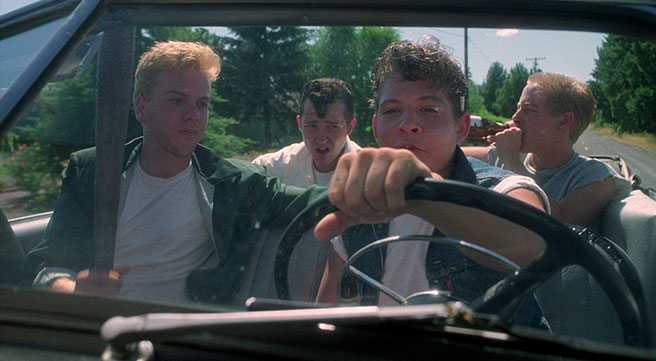 "Around this time, Charlie and Billy were playing Mailbox Baseball with Ace and Eyeball."
"Around this time, Charlie and Billy were playing Mailbox Baseball with Ace and Eyeball."
WHY WE'RE SATISFIED:
Without feeling too terribly on-the-nose, it's pretty clear that Gordie's obsession with finding the body stems from his inability to cope with the loss of his brother. He mentions he didn't cry at Denny's funeral, and flashes of Gordie missing his brother and feeling overlooked by his parents haunt his journey down the tracks. Upon finding Ray Brower's body, Gordie lets the tears fall and confides in Chris how much he misses Denny. Gordie has found the catharsis he needed and is finally ready to enter into a new stage of life as a result. When Ace and his gang shows up to claim the body as their own, Gordie goes so far as to pul a gun on Ace, not because of his need to recover the body or even out of respect for the dead, but because he refuses to let anyone take away his perfect moment of clarity. After all, Ace came by car, taking the easy route, rather than facing the trials and tribulations the boys faced (yet another fairly evident metaphor). In fact, Gordie decides not to take the body, and instead to let the dead rest, now that he has reached a place of acceptance. In adult Gordie's narration, we learn that Vern and Teddy went on to live lackluster, arguably disappointing lives, while Chris went on to make something of himself- only to be killed while trying to diffuse a dangerous situation. While these revelations sting heavily with the reality of the world, we take heart in learning that Gordie went on to overcome his issues, become a writer, and start a loving family. In the film's final moments, we see how much comfort and warmth Gordie finds in recalling the events of his youth, and we can only hope Vern, Teddy, and Chris did as well.
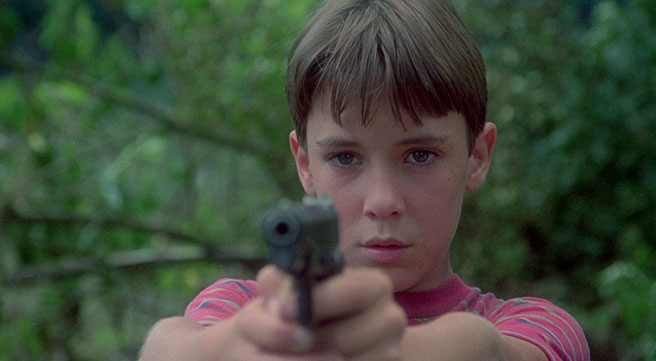 "Nobody's taking him."
"Nobody's taking him."
WHY WE REMEMBER:
In all honesty, STAND BY ME is starting to show its age. Some of the dialogue among the four boys and Ace's gang feels archaic (it is dialogue for kids in an 80's movie set in the 50's after all), and a few of the performances come off a bit forced by today's standards. That said, it's still a truly beautiful film once you settle in. The cast is insanely charming, with Wheaton, Phoenix, Feldman, and O'Connell stealing hearts left and right, Sutherland shining as the bully you love to hate, John Cusack using very little screentime to endear us to the departed Denny, and Richard Dreyfuss' narration adding a layer of wisdom and gravitas to the story. Stephen King's original story and Bruce A. Evans and Raynold Gideon's adaptation keeps the theme focused, the individual scenes exciting, and the overall tale meaningful, while Rob Reiner balances levity with solemnity as the director often does so well in his films. It's also impressive how, with its simple plot and lean 88 minute run-time, STAND BY ME could just be an extended episode of some of the hour-long dramas we're treated to in this day and age- and yet it reflects adolescence and the experience of entering into adulthood so perfectly that it still feels like so much more. In the same way we can appreciate the beauty and simplicity of our childhood, the same can be said for a thirty year-old film which says so much by saying relatively little.
Thoughts? What else worked for you? What didn't? Strike back below!
If you have any movies you'd like to see put under the microscope, let us know below or send me an email at [email protected].







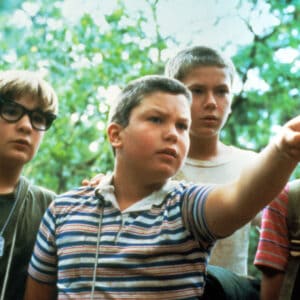

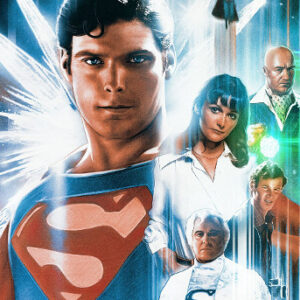
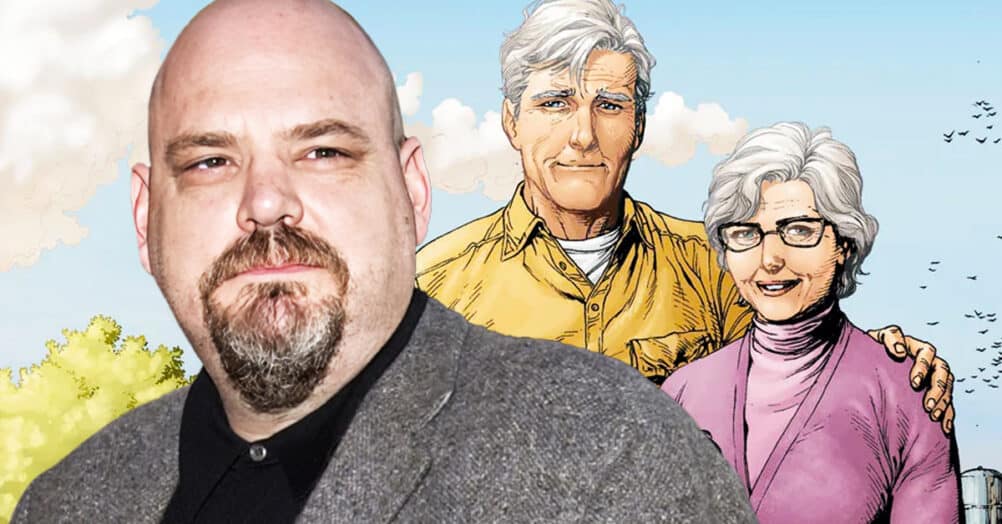
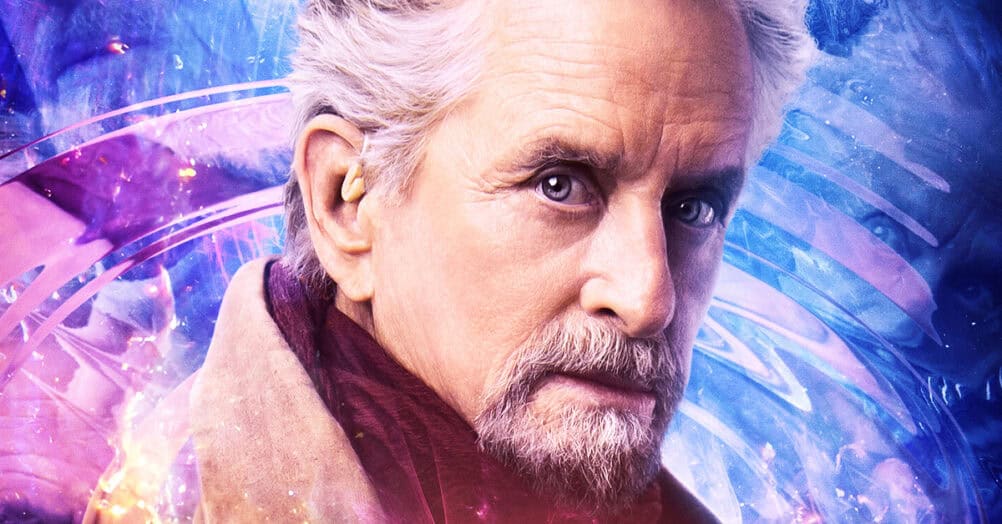
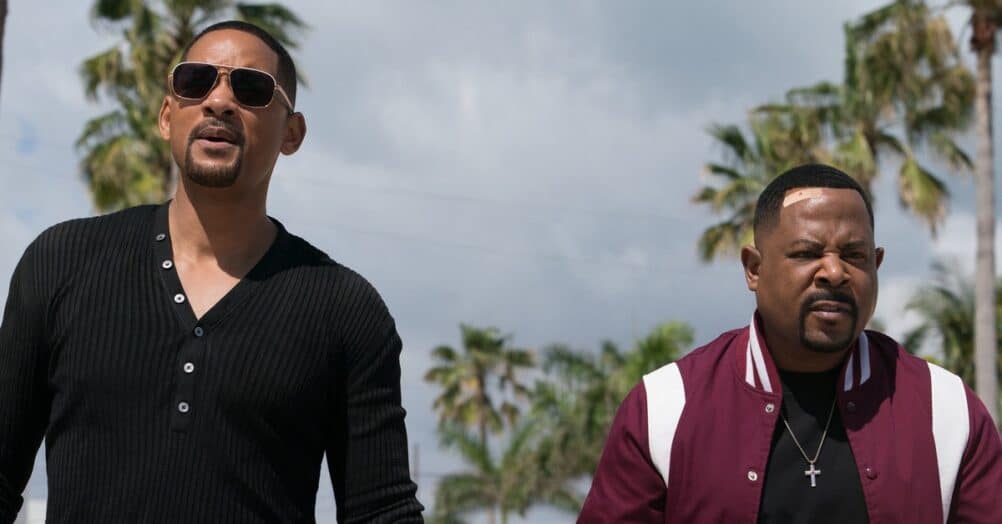

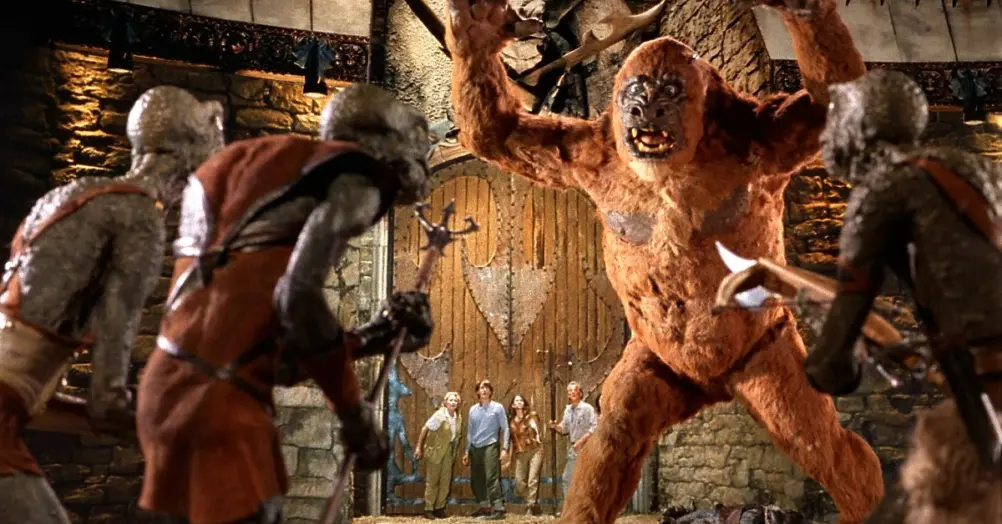
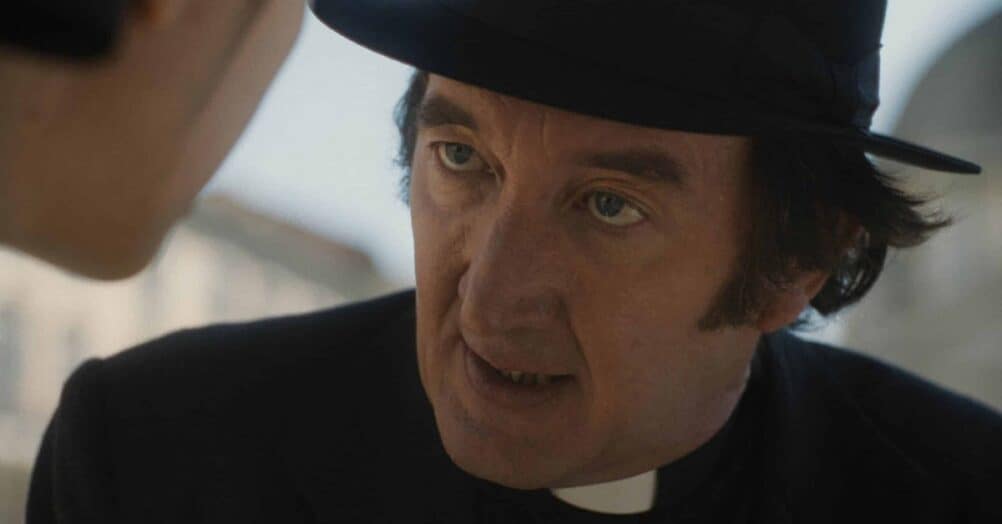


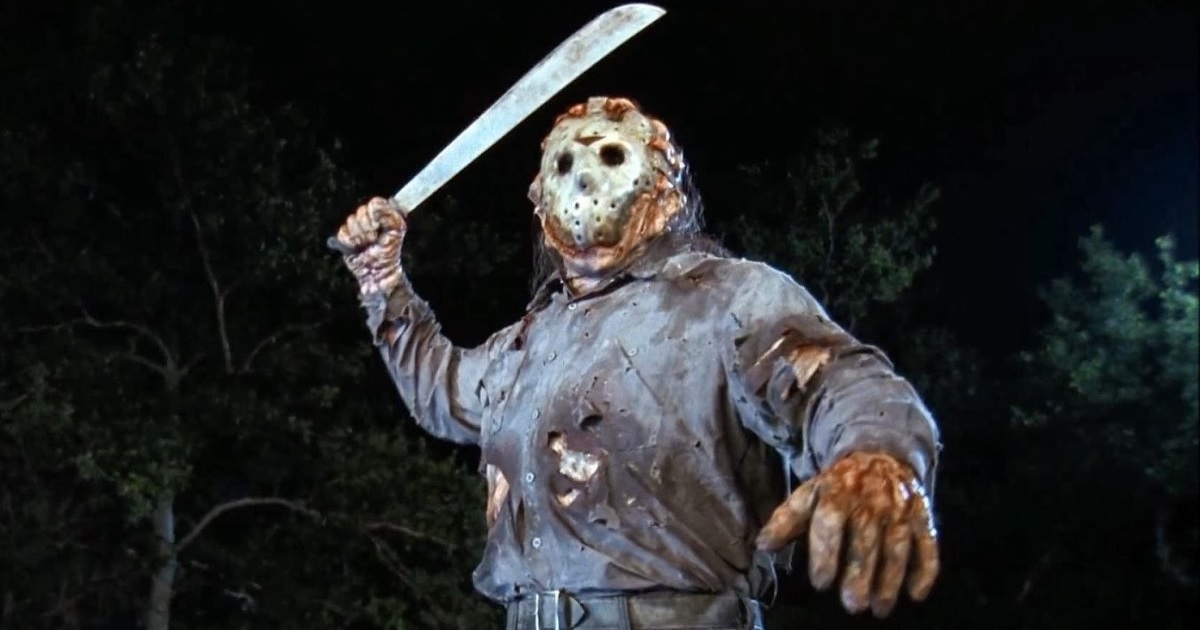

Follow the JOBLO MOVIE NETWORK
Follow us on YOUTUBE
Follow ARROW IN THE HEAD
Follow AITH on YOUTUBE